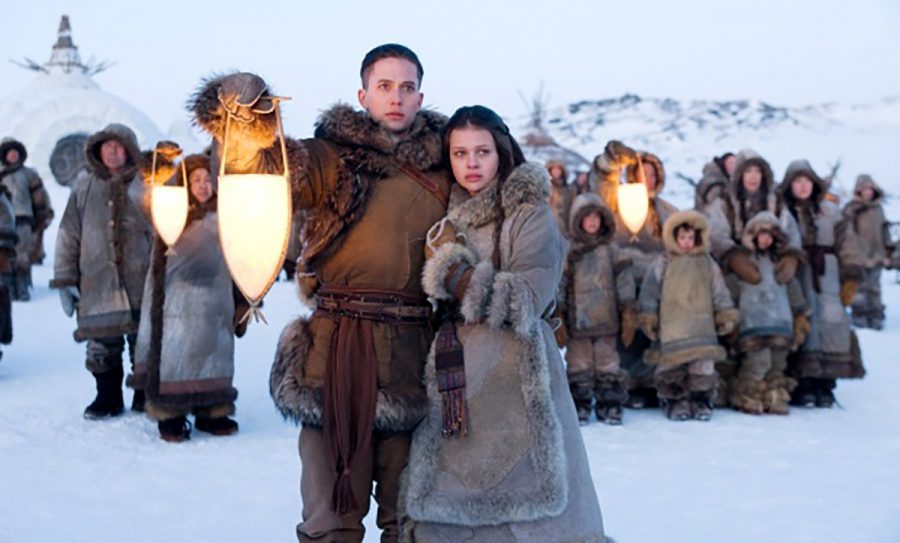Hollywood whitewashing continues to be problematic in entertainment
Recognizing more actors of color is the first step in addressing diversity in film
More stories from Deanna Kolell
Photo by submitted
A still from “The Last Airbender” shows Sokka (Jackson Rathbone) and Katara (Nicola Peltz), characters who fell victim to racebending in M. Night Shyamalan’s interpretation.
It seems the Academy of Motion Picture Arts and Sciences has finally attempted to give credit where credit is due.
The 89th Academy Awards, also known as the “Oscars,” recently released their nominations, recognizing a broader range of diverse nominees than the past two years combined.
No actors or actresses of color were nominated for the 2015 or 2016 Oscars. The backlash, spearheaded by Jada Pinkett Smith, was enormous.
“The Academy has the right to acknowledge whoever they choose. To invite whoever they choose,” Pinkett Smith said in a video asking for a boycott of the 2016 Oscars. “And now I think that it’s our responsibility now to make the change.”
Pinkett Smith was joined by fellow actors Spike Lee, Idris Elba and more in speaking out against the Academy for its lack of diversity.
In comparison, of the 20 actors and actresses nominated for the 2017 awards, seven are people of color. And for the first time ever, three nominees in one category (actress in a supporting role) are people of color.
Although many talented actors and actresses were not nominated for Academy Awards this year — Taraji P. Henson, for example — the Academy’s efforts to include more actors and actresses of color is commendable.
However, not everyone is convinced there is a diversity problem within Hollywood or that it’s worthy of their attention. Many critics of the 2016 boycott thought it wasn’t a big deal, including Whoopi Goldberg.
“You want to boycott something? Don’t go see the movies that don’t have your representation,” Goldberg said on her show “The View.”
The Oscars may seem trivial in comparison to what’s happening in the world today, but the conversation around diversity and representation in Hollywood is important. It serves as a way to recognize those creating art and reflect the society we live in.
Some would say it’s not just the problem of which artists are nominated. Perhaps, even when major roles are available, they’re still being taken by white actors and actresses.
The examples of white actors and actresses taking on racially diverse characters are extensive and certainly nothing new. In 1956, it seemed like a great idea to have John Wayne play Genghis Khan in “The Conqueror.”
Yes, the same John Wayne famous for playing cowboys in a total of 83 Westerns was the leader of the Mongol empire.
Of course, those were the ‘50s. But whitewashing in film still happens, with many examples occurring within the past decade. Some of these actors portrayed real figures, such as Christian Bale and Joel Edgerton as Moses and Ramses in 2014’s “Exodus: Gods and Kings” despite the film being set in ancient Egypt.
Many others characters were adapted from TV shows and literature. “The Last Airbender” was universally panned in 2010 for its mostly white cast depicting a show inspired by East Asian and Inuit societies. “Pan” also faced criticism in 2015 after casting Rooney Mara as Tiger Lily, the princess of a fictional Native American tribe.
What makes these casting decisions even more disconcerting is the fact the directors oftentimes don’t seem to understand why they’re facing backlash.
Director Ridley Scott — who has been behind great films like “The Martian,” “Gladiator” and “Alien” — quickly dismissed the backlash against “Exodus” in an interview with Variety magazine.
“I can’t mount a film of this budget, where I have to … say that my lead actor is Mohammad so-and-so from such-and-such,” Scott said. “I’m just not going to get financed.”
Of course directors will be concerned with making money on their films. Sometimes well-known actors are enough to sell movie tickets, but they can’t float a sinking ship.
On Rotten Tomatoes, critics gave “Exodus” and “Pan” both a 27 percent fresh rating and “The Last Airbender” an abysmal 6 percent, citing flaws with the plotting, acting and directing.
The problem is Hollywood oftentimes hesitates to broaden its horizons. It will keep making Harrison Ford don a fedora and Johnny Depp drink his rum and Tom Cruise drop from a cable until they physically can’t, rather than utilizing new talent.
But what would happen if Hollywood directors and casting crews trusted their audiences? Their vision, their story? What if they cast actors and actresses of color — perhaps less recognizable but of equal or superior talent — to carry a role they personify and identify with?
Hollywood is regenerated through explosive new stars, and that is where true magic happens.


